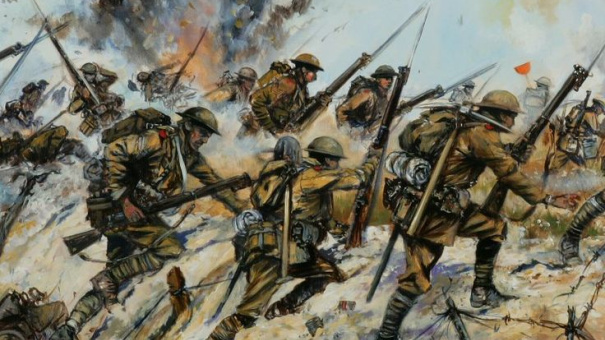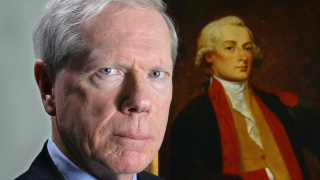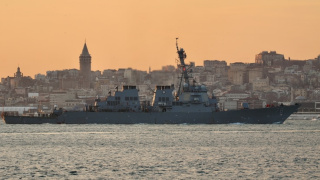Thoughts on the Fallen
A hundred years today since the end of the Great War – a sentence ripe with melancholy. I am old enough to have been a child in the visible shadow of that war. Yes, I would listen to men and women, younger than I am now, talking of their part in the Dunkirk Evacuation, or discussing who had made a fool of herself in the street when the bombs fell on Chatham. That second war, filled with colour and excitement, was barely history when I was a boy. Its end was more recent than Tony Blair’s Serbian adventure is to us. Habits of life and patterns of friendship set in The War were still established facts in the world that I had joined. Behind this, however, loomed the greater and more terrible events of an earlier war. Every day, I saw the old women in black, the old men without arms or legs, or wearing dark glasses – the memorials built large so all the names of the fallen could be fitted on them in capitals an inch high. There was no colour in that war, no excitement – only the sadness of irretrievable loss.
But its end was now a century ago. Everyone who fought in it is gone. Another few years, and those remaining who have early memories of it will be gone. The memorials are all weathered and sometimes crumbling. As I went about my daily business, time moved on. What for me was living memory has become simple history.
And what does that history teach us? I sometimes teach it in school. The texts I use describe its approach as a set of interlocking crises from which none of the main players could escape. The Austrians had to punish Serbia. The Russians had to back the Serbs. The Germans had to back the Austrians. The French had to back the Russians. In each case, prestige, and perhaps survival as a great power, left no room for turning back. We had some choice in whether to back the French, though the previous decade of unspoken commitments made it hard to choose other than we did. Once it had started, the war was impossible to end until one side was plainly beaten. The leaders had made too many promises and told too many lies for a negotiated peace to be accepted. There were soon too many dead for the families to agree that their loved ones had died for a mistake. Technology made the war a largely static affair, in which the human costs of a defensive strategy were as great as those of attacking. It was a mechanised disaster, made inevitable by unbreakable assumptions and the railway timetables.
There is something in this approach to the history of the Great War. At the same time, there were failsafe switches at every point. The Cabinet discussions in London were very close. If Churchill had not taken Lloyd George aside, it is likely there would have been no agreement for sending an ultimatum to the Germans. Without us, the French and Russians might have backed down. Or they would have gone ahead and been beaten by Christmas. Or there might have been a more limited war in the East.
Or let us suppose that men like Bismarck and Talleyrand and Lord Salisbury had been in charge of their countries. Would they have let themselves be carried over the edge? I doubt it. The true lesson of the Great War is that everyone in charge was a mediocrity who could and should have acted other than as he did. In earlier ages, mediocrity had natural limits. In 1914, the fruits of a century of progress allowed catastrophically stupid decisions to be made at costs that were bearable for nearly five years.
And if our own world is hardly perfect, that lesson appears to have been learned. The Second World War started partly for reasons that may never be openly discussed. It was enabled, though, because Hitler was a gambler who bordered on the insane. It then ran out of control for the same reason. But everywhere Hitler was not in direct charge, the leaders on each side made unusual efforts to limit the bloodshed. Once he was removed, the remaining great powers agreed that there would not be another big war. Their leaders would lie and posture. They would spend oceans of money on weapons of vast power – but these would never be used.
The fashion in Britain, and I think in America, is to denounce every leader we have had in living memory as second rate, where not as evil. Looking at what they have done to us, they certainly deserve some reckoning, in this world or the next. At the same time, they have never allowed themselves to drift into another July Crisis. Every time one seemed to arise, they joined arms and walked away.
Seen in itself, to study the July Crisis is like sitting as a boy in a Christmas pantomime. You want to shout at the men in charge: “Look out – he’s behind you! Look out – he’s coming for you!” Seen in a wider context, it may have been one of those terrible blessings that we all must have had in our personal lives. Let us suppose the men in charge had not been mediocrities. It really would have been easy for the Sarajevo assassinations to be settled at a conference in Lucerne. But let us suppose it had been, and let us suppose that, within the next quarter century, the usual run of politicians had found themselves with the Atom Bomb. We might now not be thinking about our Sunday lunch. No doubt, the Bomb itself imposed a minimal common sense on the great powers. Equally, it was invented in a world that no longer had any taste for using it.
In terms of what was promised at the time, those millions of young men died for lies. In terms of a longer term inoculation against unlimited state violence, they died indeed so that we might live.
They shall grow not old, as we that are left grow old:
Age shall not weary them, nor the years condemn.
At the going down of the sun and in the morning
We will remember them.










